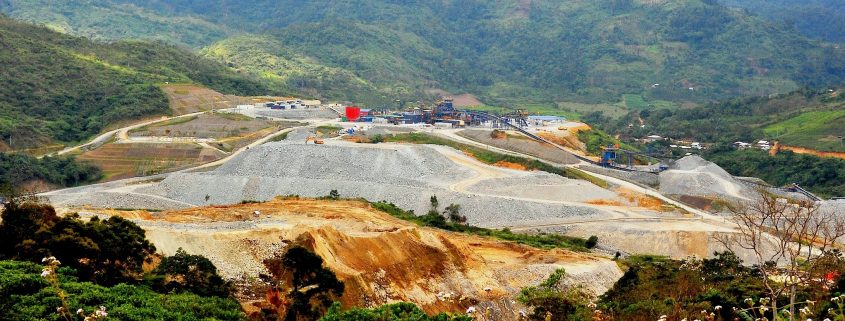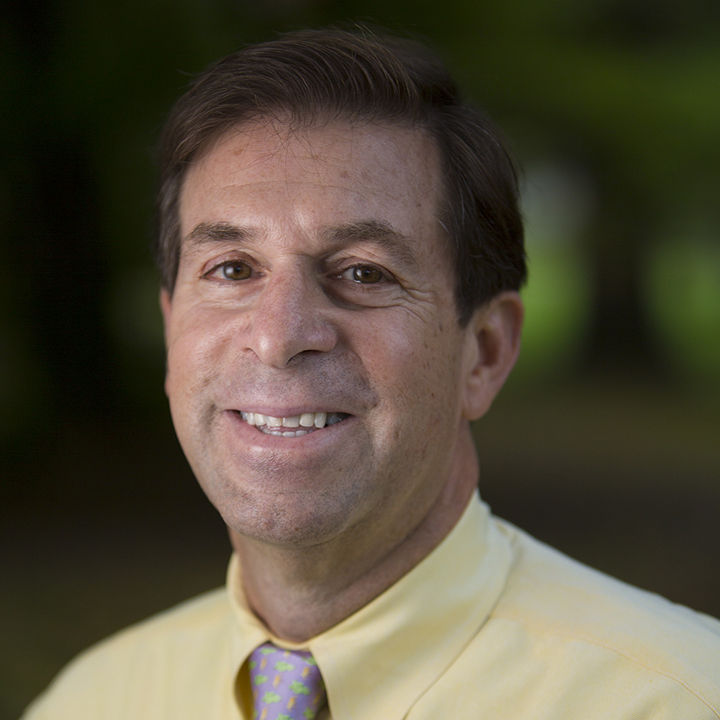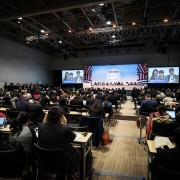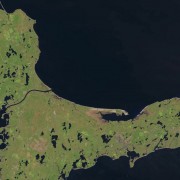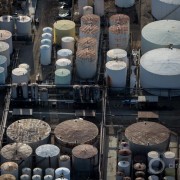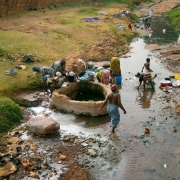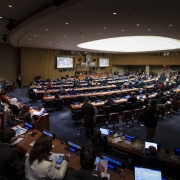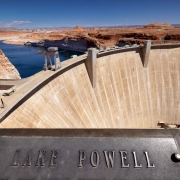Gina Lopez, Philippine Environment Secretary, Pursues Watershed Protection
Clear goals to enforce pollution laws jeopardize the new secretary’s job.
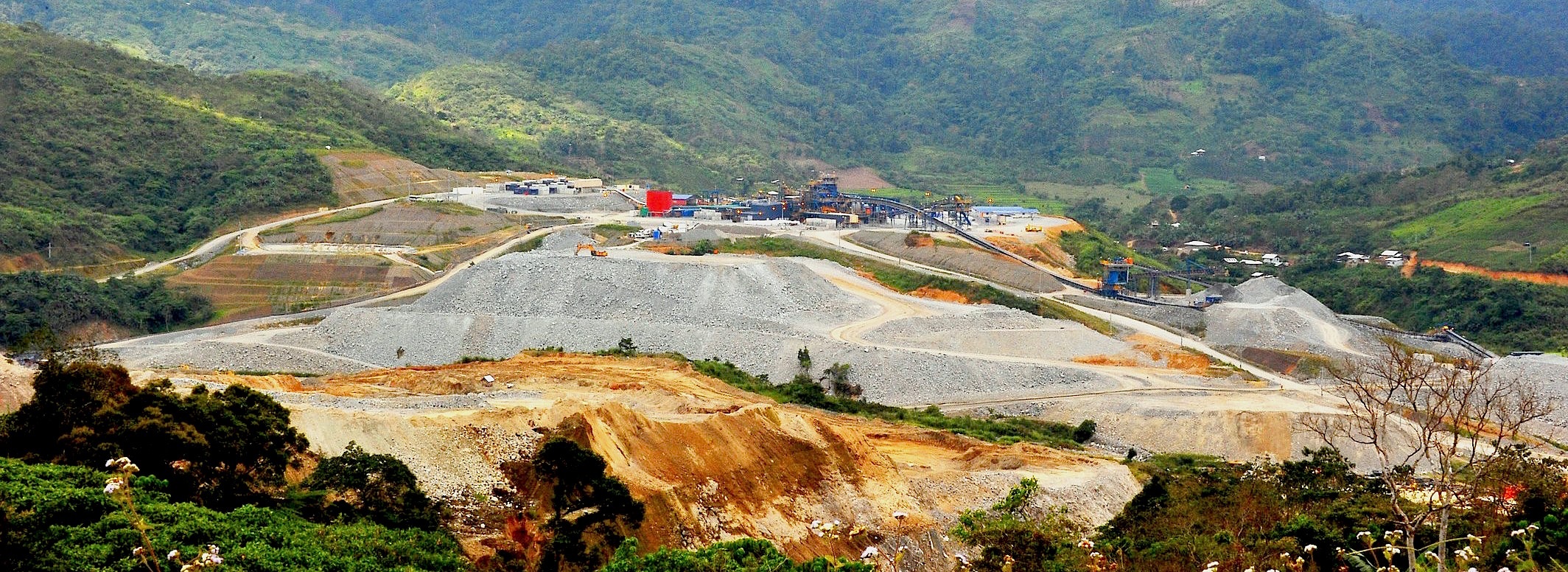
OceanaGold’s Didipio mine produces high grade gold and copper on the island of Luzon in the Philippines. The Department of Environment and Natural Resources suspended the mine’s operating license on February 8, 2017. Photo courtesy of Creative Commons
By Keith Schneider, Circle of Blue
There is really no puzzle why Gina Lopez is struggling to hold onto her job as the Philippine secretary of the environment. On her first day in the post last July she dispatched inspectors to see how faithfully the country’s 41 large hardrock mines, 28 of them nickel ore producers, adhered to national environmental law and regulation.
The Philippines is one of the world’s largest nickel ore producers and exporters. Global nickel ore prices soared on the news of Lopez’s order, in expectation that the country’s go-go industry would be shackled. Mining stocks plunged.
In August, with early findings in hand of rampant air and water quality violations, Lopez issued suspension orders for 10 mines, most of them nickel producers.
Lopez said her concern for Philippine watersheds, the “madness” of rapacious open pit mining, and the consequences to rural communities justified the audit campaign. “I want to make it clear I have no beef with the mining industry,” Lopez said at a news conference. “But I am vehemently against the adverse effects that may happen, that are happening in some of the situations.”
Lopez then took on coal miners and the coal-fired utility sector, which accounts for over 40 percent of the country’s electrical generating capacity. She called on her government colleagues to put coal-fired power aside and more aggressively pursue the 7,700 megawatts of renewable generating capacity that were proposed in a 2015 government plan.
“I’m going renewable because it’s for the Filipino people,” she said to reporters. “If they benefit, well, other people can also benefit. My thing to the businessmen, go renewable so you can also benefit.”
The Philippine Energy Secretary Alfonso Cusi wasn’t so enthusiastic. “We cannot just discount coal,” Cusi fired back.
It is not at all clear, though, how much longer Lopez’s green crusade will survive. Nine months after she joined the Duterte government Lopez’s mine audit program certainly produced globally important results. With evidence of wanton disregard for safeguards to air and water, Lopez ordered the closure or suspension of operating permits for 26 mines. She also suspended 75 of the country’s 311 mining licenses.
One of the affected projects is the proposed $US 5.9 billion Tampakan copper and gold mine on the southern Island of Mindanao. Lopez’s orders mirrored similar recent directives to control mining pollution. In 2014, India’s National Green Tribunal, an environmental court, shut down the coal mining industry in Meghalaya, a northeastern state. And just last month, lawmakers in El Salvador banned gold mining.
Called Before Review Panel
In March, following months of protest from mining executives and other critics, her job security began to be weighed by a high-profile legislative group that reviews presidential cabinet appointments. After two days of questioning, the 25-member Commission on Appointments, which includes legislators backed by the mining industry, declined to approve Lopez as environment secretary.
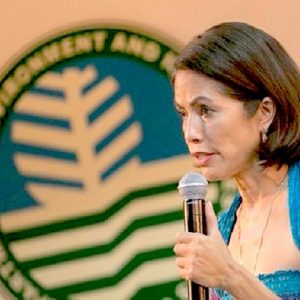
In the nine months since taking office in July 2016, Philippines Environment Secretary Gina Lopez has ordered the closure of big hardrock mines, pressed for more renewable energy, expressed allegiance to watershed protection, and attracted fierce opposition and loyal support. Her job, though, is not assured. Photo courtesy of Creative Commons
Neither did the commission reject her position. Instead, it “bypassed” the Lopez decision until early May, when the panel meets again.
If the commission rejects her appointment President Duterte can formally reappoint Lopez. But the president, who until March had consistently backed Lopez, has not said what he will do. Media reports in Manila said the president is upset by news coverage of his administration by ABS-CBN, the television network owned by Lopez’s family. Ernesto Abella, a presidential spokesman told reporters that Duterte’s denunciations of ABS-CBN and his support of Lopez “are two separate matters.”
Not surprisingly critics and supporters weighed in. The Philippines Chamber of Mines, which filed a formal statement of opposition with the commission, wants Lopez removed from office. “Secretary Lopez is not qualified for the job,” said Ronald Recidoro, the group’s vice president for legal and policy, in a television interview.
The Catholic Church, Philippine environmental groups, and many rural village leaders across the country are campaigning in support of the environment secretary. “If the Commission on Appointments rejects Ms. Lopez, it is a clear indicator that current political leaders are not serious in carrying out needed and measurable reforms in environmental conservation,” said Vince Cinches, a political campaigner for Greenpeace Philippines, in an email message to Circle of Blue. “The rejection will symbolize how the dirty industries, especially the extractive industry that has been influencing Philippine political economy for a long time, is still as strong as ever.”
Age of Disruption
Near the end of its second decade one word has come to define the 21st century — disruption. Gina Lopez’s tenure as Philippine environment secretary demonstrates the point.
A Pacific island nation of 103 million residents, the Philippines is experiencing one of the fastest rates of economic growth in the world, due in large part to development of its forests, fisheries, and minerals. Large expanses of biologically diverse land and water are affected, as are hundreds of rural communities. Until the Duterte administration, the country’s development decisions focused on job growth and typically tilted to felling forests or opening mines.
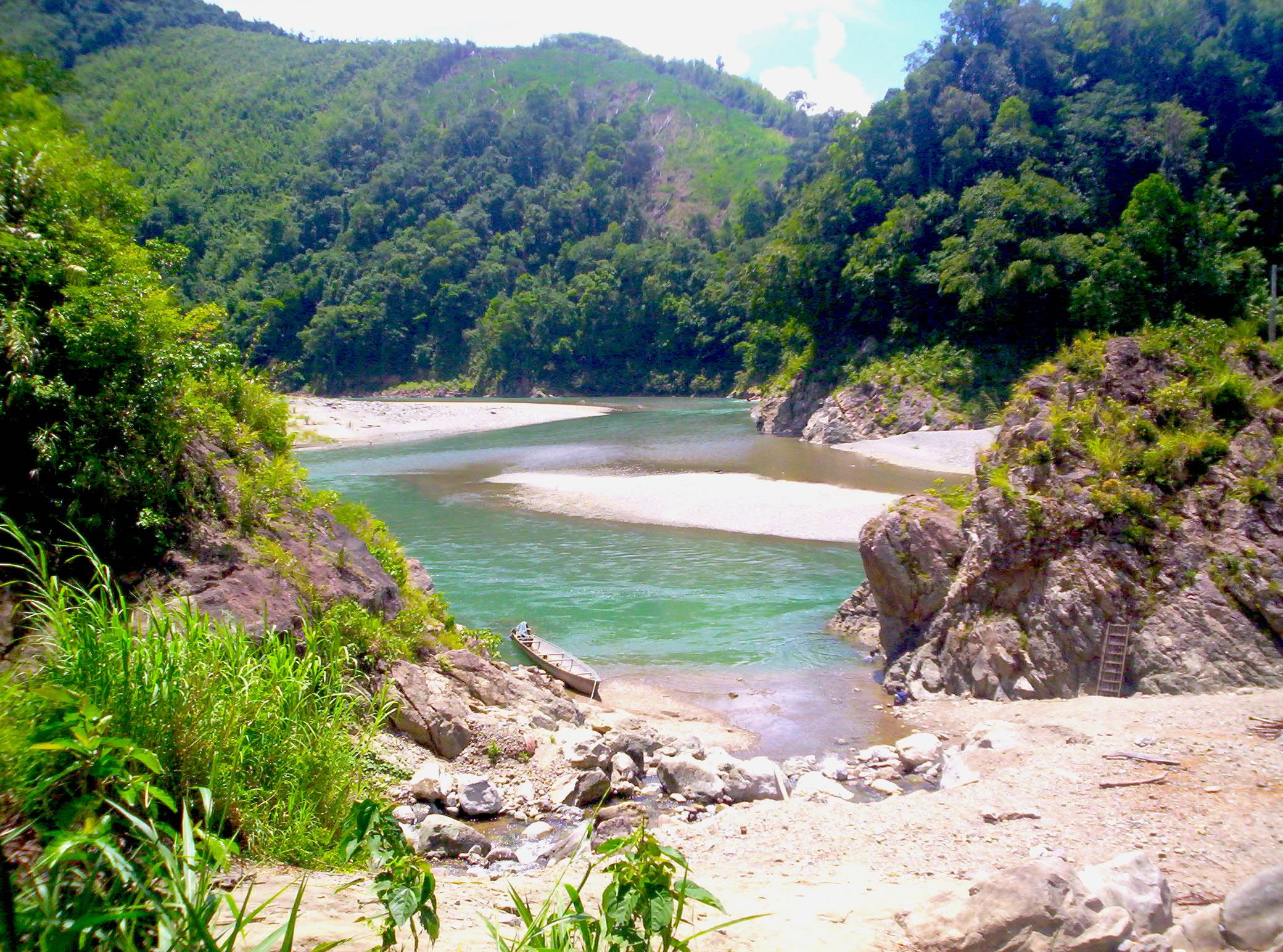
Philippines Environment Secretary Gina Lopez says that the safety of her country’s watersheds and freshwater resources is a top priority. The Dibagat River is a prime example of the country’s freshwater bounty. Photo courtesy of Creative Commons
Philippine authorities, seeing the country’s changing ecology, are now reconsidering their economic priorities. The island nation sits in the path of extreme weather events that are growing more numerous and deadly. Five of the 10 deadliest typhoons that struck the Philippines since 1947 have occurred since 2006, according to the Climate Reality Project. Typhoon Haiyan, the deadliest, killed 6,300 people in 2013, forced 4 million residents from their homes, and caused $US 2 billion in damage.
Similarly dangerous climate conditions occur all across the world now. Storms, droughts, flooding, abnormal heat, and sea level rise are influencing harvests, energy markets, urban development, and human migration patterns. Truculent weather is a big factor in the market disarray and political instability that is overtaking nations on every continent.
National leaders are reacting with exceptionally aggressive steps. In the United States, President Donald Trump’s plan to achieve economic stability is to push hard to expand fossil fuel production and repeal protections for air and water. In the Philippines, President Rodrigo Duterte, whose bloody pursuit of drug traffickers has attracted global attention, did the opposite.
Duterte turned out to be an ardent land and water conservationist. After decades of lackadaisical enforcement Duterte alerted the Philippine industrial sector that he would enforce existing environmental law. Duterte appointed Lopez, a respected 63-year-old foundation executive and environmentalist, as his environment secretary because he marveled at her knowledge and fearlessness. Duterte also embraced her view that watersheds and his nation’s prodigious ecological bounty are base resources that support the country’s 21st century economy.
“I can forego the 40 billion pesos ($US 800 million) I collect from you,” Duterte told mining executives last August in a news conference. “Filipinos will survive without you. Either you follow strict government standards or you close.”
Based on reporting and opinion in Philippine newspapers and on television news, public sentiment for Lopez to keep her job outweighs the opposition. More than 3,000 people demonstrated in Manila last month in support of the suddenly embattled environment secretary.
“Confirmation of the incumbent secretary is a matter of both urgency and continuity for environmental reforms,” said Greenpeace Philippines in a statement. “It’s one sign that the Duterte administration is actually committed to its promise of positive change over the greed of the few that has for many years ravaged the environment and the lives of the Filipino people.”
Circle of Blue’s senior editor and chief correspondent based in Traverse City, Michigan. He has reported on the contest for energy, food, and water in the era of climate change from six continents. Contact
Keith Schneider

